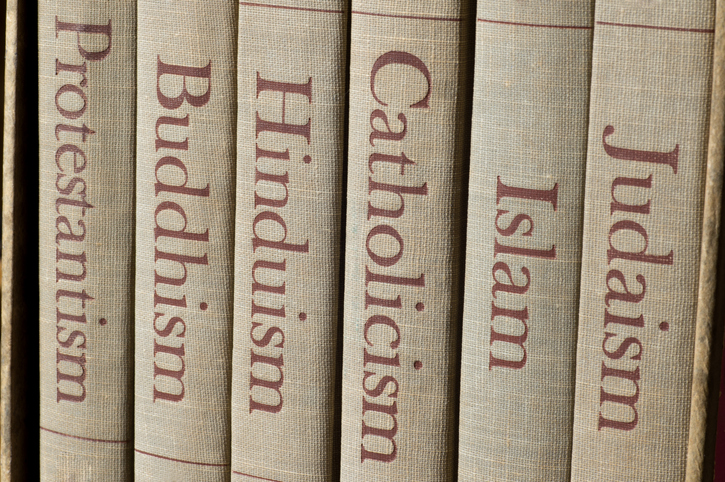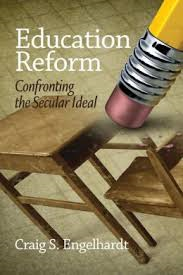
Like every traditional “private” school, charter schools are held to basic legislated standards of curriculum and safety with one major exception. For better or worse, the most serious governmental imposition on the charter school has been the exclusion of religion.
The teachers unions have discovered that charter schools are enemies of the good society.
Bernie Sanders is with them, warning us that these institutions are anti-democratic and must be brought to heel – that is, in reality, to the heel of the union, which insists that charter schools are essentially private and threatening to work evil among the poor in our cities.
And private they are in varying degrees depending to some extent upon the terms of their particular compact. The point of the original charter concept (1971) was to aid the liberation of the low-income parent and child from subordination to those unchosen strangers from government and union who control the self-styled “public” school located in their compulsory attendance zone.
Charter schools were to give the poor a taste of the personal and civic responsibility enjoyed by wealthier Americans who can and do freely cluster in chosen government schools in the suburbs or pay tuition in the private sector.
Like every traditional “private” school, the charter is held to basic legislated standards of curriculum and safety with one major exception. For better or worse, the most serious governmental imposition on the charter school has been the exclusion of religion.
Though the parental choice among charter schools is completely free, the schools themselves are unfree either to recognize or reject God. They must secure their students’ ears, eyes and thoughts from any suggestion of the divine, either positive or negative, with all the predictable effects of this upon the child’s mind.
In many states, this censorship is defended as a requirement of 19th century “Blaine Amendments” to the state constitution forbidding public aid to religion. The non-Blaine charter states have accepted this intellectual taboo as the norm and as the diktat of the union.
Given relevant precedent and the seeming attitudes of a majority of the justices of the U.S. Supreme Court, there seems no barrier under the federal constitution to the extension of the state’s authority to subsidize its parents’ choice of religious charter schools. The larger question will be whether the states are forbidden by our national law to actually exclude aid to the subsidized choice of such schools by parents. Next term, the Court will consider Espinoza vs. Montana Dept. of Revenue, presenting this very issue.
If we have vouchers, must they be for the choice of all legitimate schools? Here the school and parent may one day have reason to thank the teachers union for its clear insight that the charter school is indeed private.
Belief has never, for me, been a matter of choice.
A natural universe entails a transcendent (if misty) creator. Even in these times of STEM, from nothing comes nothing. And yet, more than a few human minds, some quite celebrated, simply shun that first principle of the very rationality they strive to personify.
In recent years, I’ve subscribed to the atheist magazine Skeptical Inquirer hoping to better understand this intellectual boycott of the origin of all things “natural.” I even offered an essay of my own, hoping to stir conversation on the cognitive legitimacy of this taboo of theirs and thus play my own part as skeptic. The rejection was polite – maybe deserved. In any case, I grieve that the atheist intellectual finds it so threatening to let his mind glance back over the shoulder of his own natural self and run the risk of a surprise encounter.
The atheist’s denial of all but nature can seem a matter of intense emotion; the true unbeliever often appears as untamed by his conviction as is the believer by his. Recently, the New York Tines ran a full-page front-section Sunday ad celebrating non-belief and declaring that the scummy behavior of a number of Catholic clergy liberates all of us from belief in God. It would seem divinity itself is to be tested by the behavior of hypocrites who betray their own moral code. The bad priest is evil by his own professed standard and, therefore … God is dead: This is a sequitur?
The ad makes clear that the minds of its signatory atheists actually share many of these same moral precepts pretended by these phony clerics – while pursued in practice by the faithful. Unbelievers and believers alike applaud most of the same “goods” and those humans who strive to realize them. It is hard to credit the anti-God mind with full rationality in this reproach to belief. Right or wrong, there seems a good deal more than intelligence at work here.
But what have such appraisals of atheist thought to do with the availability of subsidized school choice for the poor? My own experience as a child makes me grieve that such families to this day remain the indentured clients of a curiously narrow-minded school curriculum.
Such intellectually muffled schools are, by law, forbidden to present a coherent picture of the “good life” or even of life itself. The teacher is forbidden to consider the question of the source of physical nature, and the mind of the child is invited to shrink. Darwin is properly welcomed to the student’s mind; evolution of the natural world is highly plausible. But if the student cannot be encouraged to consider how nature, including Darwin himself, came to be, the mind of the child has been cheated.
This is not an argument against government schools. It is simply the observation that the poor, as a matter of both reason and justice, should be given the same options that, in theory, the Constitution guarantees to all of us. If parents prefer the narrow picture of life available in PS 42, they should have their choice. But so also should those who prefer a curriculum that invites the mind to a less provincial view of realty.

The legendary Jack Coons of Berkeley writes, "One of the primary effects of this exclusion of God is that the school must now present some picture of human happiness and its achievement that fades with death; and that picture must be consistent with a reason for good citizen behavior."
Three score years ago the U.S. Supreme Court forbade the teaching and symbols of religion in public schools. God is neither to be discussed, pictured nor even sung to at Christmas; maybe at graduations and football games students may express their thanks to God – up to a point.
It is proper, of course, for the teachers to relate the truths of Darwin and his theory of natural selection. But, it is improper to invite the student mind to wonder about just how all that material reality came to be in the first place. Could matter create itself; could all this something come from nothing?
Q: Teacher, would you explain?
A: School doesn’t teach about that; ask your mother.
The social effect of banishing God-talk from the classroom is very difficult to estimate using the statistical lenses of social science. But, with observation and common sense, one can hope broadly to describe the expectations of the justices and, then, the degree of their realization in our time. The court hoped: 1) to clarify that using the public education office to make children aware of our God debates (or, worse, of course, to take sides) occasions an “establishment of religion,” hence is forbidden; and 2) thereby to assure an atmosphere in public school purged of transcendental ideology, assuring offense to none and, instead, making a contribution to social unity.
The court’s first hope appears realized to a considerable degree. Litigation and administrative persuasion have been successful at eliminating many books and teaching materials that suggest the existence of God and his role in human life. There is, I believe, little of the transcendental left lurking in our curricula. The court’s purge has, of course, been greatly assisted by many state constitutions that, since the late 19th Century, have forbidden nearly all public assistance to religious private schools.
One of the primary effects of this exclusion of God is that the school must now present some picture of human happiness and its achievement that fades with death; and that picture must be consistent with a reason for good citizen behavior. Even without God we have to live together. With eternal salvation as a classroom no-no, the government must present a life-plan and defend it. And so it does. With God out of the picture, each of us is “to find ourselves,” set our own goals and do what’s best for number one. To teach the child otherwise – to recognize and honor an already established human rule and responsibility – would verge upon theology. Of course, the teacher and the system do have rules of conduct for the child, but these must be understood and defended principally as the assurance that everyone, to a point, lets the other fellow do his own thing.
Has secularization worked? I fear not. (more…)
 If one wishes a profound historical-dialectical account of the fate of religion in our governmental schools - all in 200 pages - make Craig S. Engelhardt’s new book, “Education Reform: Confronting the Secular Ideal,” your primer.
If one wishes a profound historical-dialectical account of the fate of religion in our governmental schools - all in 200 pages - make Craig S. Engelhardt’s new book, “Education Reform: Confronting the Secular Ideal,” your primer.
Engelhardt's guiding principle is constant and plain: If society wants schools that nourish moral responsibility, it needs a shared premise concerning the source and ground of that responsibility; and this source must stand outside of, and sovereign to, the individual. Duty is not a personal preference; if it is real, that is because it has been instantiated by an authority external to the person. In contemporary theory, the source of such an authentic personal responsibility is often identified in ways comfortable to the secular mind. There is Kant; there is Rawls.
But in the end, the categorical imperative and the notion of an original human bargain are vaporous. We go on inventing these foundations, but, in moments of moral crisis, such devices do not provide that essential, challenging, universal insight that tells each of us he ought to put justice ahead of his own project. Only a recognition of God’s authority and beneficence can, in the end, ground our grasp of moral responsibility.
This message is repeated at every turn to support the author’s practical and political conviction - that the child cannot mature morally in a pedagogical framework that deliberately evades its own justification. Engelhardt shows in a convincing way that the religious premise was originally at the heart of the public school movement. Americans embraced the government school for a century precisely on the condition that it gave expression to a religious foundation of the good life. When modernism and the Supreme Court gave religion the quietus in public schools, the system serially invented substitutes including “character education,” “progressivism” and “values clarification” – each of which in its way assumed but never identified a grounding source. The result: a drifting and intellectual do-it-yourself moral atmosphere - an invitation to the student to invent his own good. And all too many have accepted.
Engelhardt gives fair treatment to all players in the public school morality game. From the start he provides a generous hearing to the century-and-a-half of well-intending and intelligent minds who paradoxically frustrated their own mission of a religious democracy, first by shortchanging the unpromising Catholic immigrant, then - step by step - pulling the rug from under that transcendental dimension of education which alone could serve their wholesome purpose of training democrats. In this book, every historical player gets to give an accounting of the good he or she intended and the arguments thought to support it; of course, the rebuttals by Engelhardt are potent and even fun to read.
My first and less basic criticism of the book is its slapdash attention to the legal paraphernalia that will be necessary to school choice, if it is to serve the families who now enjoy it the least. (more…)
There are 1.2 million empty seats in Catholic schools across the country and we’ve been in dialogue with Catholic educators in Florida and nationally about how to fill them. Our colleagues at the Alliance for Catholic Education (ACE), headquartered at the University of Notre Dame, are helping lead this effort and have identified tax credit scholarships as part of the solution.
In Florida and several other states tax credit scholarships have become a growing source of income for Catholic schools. In the 2009-10 school year, Florida Catholic schools received $12,647,900 in tax credit scholarship funds, or approximately 11 percent of all the Florida tax credit scholarship money distributed that year.
But while tax credit scholarships are a big help, whether to convert existing Catholic schools to charter schools is dominating the discussion. A handful of Catholic schools have converted to charters in the last two years and these conversions have generated intense debate within the church and throughout the school choice movement. Many Catholic educators think converting a Catholic school to a charter strips all traces of Catholic education and identity from that school, while others argue Catholic education is about a set of core values and attitudes that can be modeled and taught in a charter school even if the crucifix is taken off the wall. (more…)